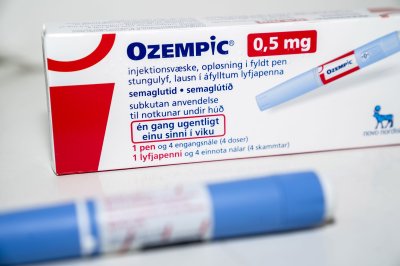Topic: Nora Volkow
Quotes
This fundamental discovery advances our understanding of how cocaine addiction works
Study: Cocaine keeps pleasure center 'on' Jan 07, 2010
Adolescents and young adults take stimulant medications to improve cognitive performance, to study for an exam, or to prepare for something that requires a deadline involving intense work
Teen girls abuse drugs more than boys May 05, 2010
Not only are there disruptions in the circuits involved in reward -- the ability to feel pleasure -- and learning; but also in frontal areas of the brain that are involved with executive control and that enable you to make decisions, to judge, to control your desires and your emotions
Teen girls abuse drugs more than boys May 05, 2010
For the time being, the best bet is to use an ear piece or the speaker phone,
Study: Cellphones change brain activity Feb 23, 2011
Nora Volkow (b. 27 March 1956) is director of the National Institute on Drug Abuse. She is Leon Trotsky's great-granddaughter.
Born in Mexico City, Volkow grew up in the house where Trotsky was killed. She attended the Modern American School, then earned a medical degree from National University of Mexico before going to New York University for psychiatric residency. She had a professional career at Brookhaven National Laboratory before becoming director of NIDA in May 2003.
Nora Volkow has been director of the National Institute on Drug Abuse since 2003. Her imaging studies of the brains of people addicted to drugs have helped to clarify the mechanisms of drug addiction. They have also helped to change the public's view of drug addiction, from that of a moral violation or character flaw to an understanding that pathological changes to brain structure make it very difficult for addicts to give up their addictions. Volkow has shown that abnormalities in the prefrontal cortex of addicts create a feeling of need or craving that addicts know is irrational but cannot prevent. Prefrontal abnormalities also make it difficult to override compulsions to take drugs by exercising cognitive control. The main areas affected are the orbitofrontal cortex, which maintains attention to goals, and the anterior cingulate cortex, that mediates the capacity to monitor and select action plans. Both areas receive stimulation from dopamine centers lower in the brain. A steady influx of dopamine makes it difficult for addicts to shift their attention away from the goal of attaining drugs. It also fastens their attention to the motivational value of drugs, even though these drugs have long stopped providing pleasure. It is now understood that dopamine activation does not signal pleasure. Rather, it signals the importance or relevance of sought-after goals. Addicts have a hard time turning their attention -- and their actions -- away from the goal of acquiring and consuming drugs. They are caught in a spiral of physical brain changes and the psychological consequences of those changes, leading to further changes.
It uses material from the Wikipedia article "Nora Volkow."











